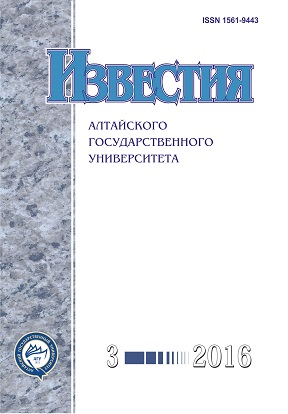The Concept and Structure of Ordinary Sense of Justice
DOI:
https://doi.org/10.14258/izvasu(2016)3-03Keywords:
legal consciousness, legal culture, individual consciousness, group consciousness, ordinary sense of justice, legal infantilism, legal ideologyAbstract
Ordinary sense of justice, as the spiritual principle in the law, has a significant motivational impact on social relations, and legal behavior and is one of the leading factors in the development of legal activity of the person. The ordinary sense of justice is intended to ensure the personal, social well-being, stability, to prepare for the unfavorable external factors that contribute to goal-setting action and the ways to achieve it. Common sense reveals the relationship between things and phenomena on the basis of an explanation of the unknown through the known with the help of analogies, suggesting future developments. The formation of the ordinary sense of justice influences the choice of remedies, the effectiveness of different types of legal activities. Allocation of the structural elements in the sense of justice contributes to the understanding of its role and place in human life and society. The article appeals to several aspects concerning the formation of legal consciousness of ordinary citizens. These issues are related to the mechanism of formation of active legal position of the population. Scientific analysis of the ordinary sense of justice involves the study of the legal mentality of the society, without which it is difficult to understand the internal logic, stability, identity of the sense of justice and its typical socio-psychological response. This work is one of the first studies of theoretical issues of ordinary sense of justice manifestations in law. The author made an attempt to formulate methodological premise to consider the legal aspects of this category. The article reveals the legal content and relationship between rising of the ordinary sense of justice and the basic categories of law: law, legal system, rule of law, legal culture. It allows presenting a general theoretical model to raise ordinary sense of justice.DOI 10.14258/izvasu(2016)3-03
Downloads
References
Керимов Д.А. Философские проблемы права // Советское государство и право. - 1975. - № 7.
2
Сорокин В.В. Правосознание в переходный период общественного развития // Журнал российского права. - 2001. - № 10.
3
Ратинов А.Р. Актуальные задачи психологии права // Психологический журнал. - 1987. - № 1.
4
Мусурманкулова А.А. Виды правового сознания // Известия вузов Кыргызстана. - 2015. - № 5.
5
Фабрика И.В. К вопросу о структуре правосознания // Вестник Южно-Уральского государственного университета. Серия: Право. - 2006. - № 13 (68).
6
Старикова А.В. О проблемах определения сущности правосознания // Актуальные вопросы юридических наук в современных условиях : сборник научных трудов по итогам Междунар. науч.-практ. конф. - СПб., 2016.
7
Панкратова М.Е. Правосознание, его структура, виды, уровни и функции // Современное право. - 2015. - № 1.
8
Бондарев А.А. Правосознание в механизме правового поведения субъектов правоотношений // Ученые записки Орловского государственного университета. Серия: Гуманитарные и социальные науки. - 2015. - № 3.
9
Васильев А.А., Сорокин В.В. Концепция правового воспитания российского общества : коллективная монография. - Барнаул, 2014.
Downloads
Issue
Section
License
Izvestiya of Altai State University is a golden publisher, as we allow self-archiving, but most importantly we are fully transparent about your rights.
Authors may present and discuss their findings ahead of publication: at biological or scientific conferences, on preprint servers, in public databases, and in blogs, wikis, tweets, and other informal communication channels.
Izvestiya of Altai State University allows authors to deposit manuscripts (currently under review or those for intended submission to Izvestiya of Altai State University) in non-commercial, pre-print servers such as ArXiv.
Authors who publish with this journal agree to the following terms:
- Authors retain copyright and grant the journal right of first publication with the work simultaneously licensed under a Creative Commons Attribution License (CC BY 4.0) that allows others to share the work with an acknowledgement of the work's authorship and initial publication in this journal.
- Authors are able to enter into separate, additional contractual arrangements for the non-exclusive distribution of the journal's published version of the work (e.g., post it to an institutional repository or publish it in a book), with an acknowledgement of its initial publication in this journal.
- Authors are permitted and encouraged to post their work online (e.g., in institutional repositories or on their website) prior to and during the submission process, as it can lead to productive exchanges, as well as earlier and greater citation of published work (See The Effect of Open Access).








